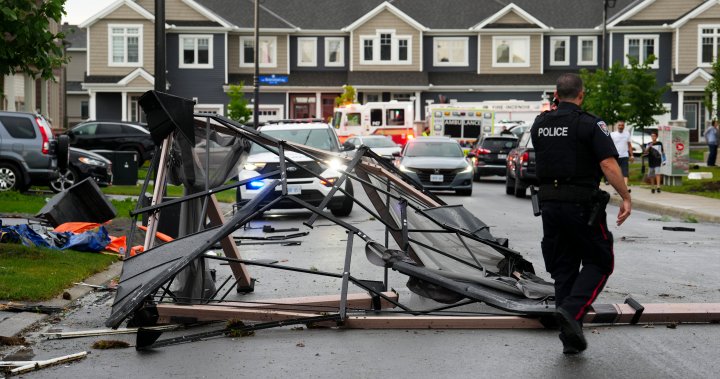The recent study by Statistics Canada highlights the increasing financial burden faced by Canadians and their insurers due to the rise in natural disasters such as wildfires, frigid cold, and hurricanes. Since 2009, insurance companies in Canada have seen a significant increase in catastrophic claims, with annual spending jumping from around $400 million to almost $2 billion. Recent events such as hurricanes, floods, and wildfires have caused insurance payouts to reach $3.4 billion in 2022 and $3.1 billion in the previous year, which is 50% higher than the yearly average. This surge in claims has led to higher insurance premiums for consumers, as insurers adjust their rates to match the increased payouts.
The study points out that insurers are facing greater risks due to the rising number of claims, leading to reinsurance rates increasing by 25 to 70 percent. Reinsurance helps insurers mitigate the risk by sharing it with other companies, but the ongoing disasters are making it more expensive for companies to manage their risks. Homeowners are feeling the impact of these rising costs, with the Consumer Price Index for homeowners’ insurance outpacing all-items inflation since 2020. The increase in costs associated with replacement materials such as lumber has further added to the financial strain on insurers, reinsurers, and consumers in managing risk.
To reduce the risk to homeowners, the study suggests taking preventive measures such as moving combustible materials away from homes to prevent wildfires. The Intact Centre on Climate Adaptation’s Blair Feltmate also recommends measures like cleaning out rain gutters and having a sump pump in homes to limit the risk of residential basement flooding, a major driver of insurance claims. As extreme weather events are expected to continue and become more intense in the future, Canadians are advised to take precautions to protect their homes and communities. Being informed about the available insurance coverage can help individuals make smart decisions to reduce their risk and ensure they have adequate protection in the face of natural disasters.
Blair Feltmate emphasizes the importance of rapid action to better protect communities and homes from flooding, wildfire, and extreme heat, as extreme weather events are projected to become more severe in the future. He advises Canadians to be proactive in safeguarding their properties and understanding their insurance coverage to mitigate the financial impact of natural disasters. By taking preventive measures and staying informed about insurance options, homeowners can reduce their risk exposure and potentially lower their insurance premiums in the long run. Overall, the study underscores the need for individuals, insurers, and policymakers to work together to address the increasing challenges posed by climate-related risks and ensure that communities are resilient in the face of growing natural disasters.


